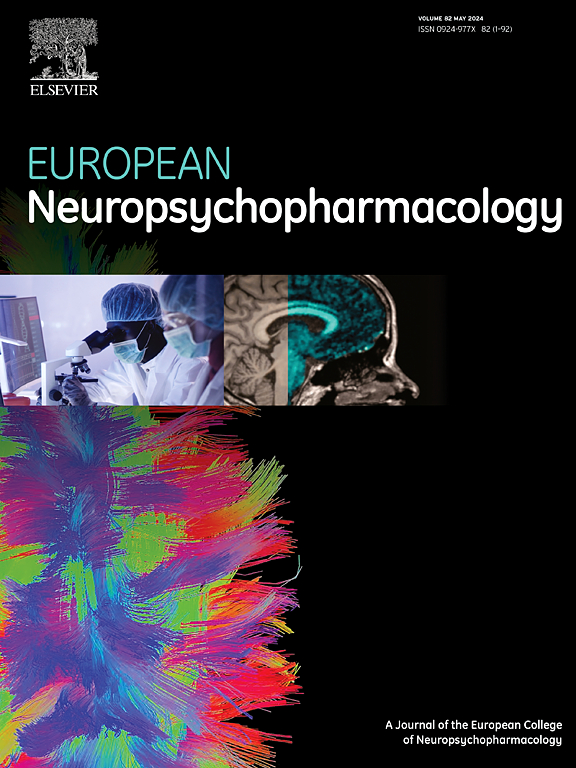异质性和合并症:生物库、登记册和电子病历的视角
IF 6.1
2区 医学
Q1 CLINICAL NEUROLOGY
引用次数: 0
摘要
大规模、以人群为基础的生物库、电子健康记录(EHR)和医疗登记册为精神遗传学研究提供了前所未有的样本量,从而起到了变革性的作用。至关重要的是,其中许多资源还提供了不断扩大的时间轴纵向数据,可以从中调查个体患者的生命历程。这些数据非常复杂,包括不同的复发情况、发作间隔、治疗经历、合并症、次要结果和疾病轨迹。总之,我们观察到数据集和个体之间存在巨大的差异。这为我们提供了一个新的机会,可以系统地研究对个体病例进行多样化和细致入微的描述是否会对精神疾病潜在结构的遗传学发现产生影响。在本次研讨会上,我们将汇聚来自英国生物库、iPSYCH、丹麦献血者/哥本哈根医院生物库、丹麦健康登记、瑞典健康登记和 BioVu EHR 的研究人员,从不同的视角和研究角度对复杂的数据进行分析。首先,Lu Yi 将介绍她利用瑞典健康登记中的同胞分析来描述重度抑郁症的多种临床特征对其遗传结构的影响。其次,Sarah Guagliardo 将利用范德比尔特大学的 BioVu EHR 深入研究多动症的性别特异性。第三,Jolien Rietkerk 将利用英国生物库(UKBiobank)和 iPSYCH 的数据,系统地描述与五种主要精神疾病成对合并相关的多基因图谱的变异性。最后,Mischa Lundberg 将介绍生物库抽样方案和纳入/排除标准的变化如何影响生物库、电子病历和医疗登记处中重度抑郁症病例的遗传特征。乔纳森-弗林特(Jonathan Flint)将结合精神病遗传学当前和未来的发展方向讨论这项工作。本次研讨会将概述规模越来越大、评估越来越深入和广泛的数据资源所带来的复杂性和机遇。本文章由计算机程序翻译,如有差异,请以英文原文为准。
HETEROGENEITY AND COMORBIDITY: PERSPECTIVES FROM BIOBANKS, REGISTRIES AND EHRS
Large-scale, population-based biobanks, electronic health records (EHRs) and medical registries have been transformative for psychiatric genetics research through providing unprecedented sample sizes. Critically, many of these resources are also providing longitudinal data across an expanding timeline from which the life-course of individual patients can be surveyed. The view is a complex one - varying recurrence, intervals between episodes, treatment experiences, comorbidities, secondary outcomes, and disease trajectories. In short, we observe an immense amount of variability across dataset and individuals. This creates a new opportunity to systematically interrogate if using diverse and nuanced descriptions of individual cases can impact on the genetic findings of underlying architecture of psychiatric disorders. In this symposium, we bring together researchers providing different perspectives and research angles interrogating the complex data from the UKBiobank, iPSYCH, Danish Blood Donors/Copenhagen Hospital Biobank, the Danish Health Registries, Swedish Health Registries, and the BioVu EHR. First, Lu Yi will describe her work using co-sibling analysis in the Swedish Health Registries to describe multiple clinical features of major depression that impact on its genetic architecture. Second, Sarah Guagliardo will dive into the sex-specific heterogeneity in ADHD using Vanderbilt University's BioVu EHR. Third, Jolien Rietkerk will systematically describe variability in polygenic profiles associated with pairwise comorbidity of five major psychiatric disorders using data from the UKBiobank and iPSYCH. Finally, Mischa Lundberg will describe how variations in biobank sampling schema and inclusion/exclusion criteria can impact on the genetic profiles of major depression cases across biobanks, EHRs, and medical registries. Jonathan Flint will discuss this work in the context of ongoing and future directions in psychiatric genetics. This symposium will provide an overview of the complexities and opportunities presented by larger and larger data resources with deeper and broader assessments.
求助全文
通过发布文献求助,成功后即可免费获取论文全文。
去求助
来源期刊

European Neuropsychopharmacology
医学-精神病学
CiteScore
10.30
自引率
5.40%
发文量
730
审稿时长
41 days
期刊介绍:
European Neuropsychopharmacology is the official publication of the European College of Neuropsychopharmacology (ECNP). In accordance with the mission of the College, the journal focuses on clinical and basic science contributions that advance our understanding of brain function and human behaviour and enable translation into improved treatments and enhanced public health impact in psychiatry. Recent years have been characterized by exciting advances in basic knowledge and available experimental techniques in neuroscience and genomics. However, clinical translation of these findings has not been as rapid. The journal aims to narrow this gap by promoting findings that are expected to have a major impact on both our understanding of the biological bases of mental disorders and the development and improvement of treatments, ideally paving the way for prevention and recovery.
 求助内容:
求助内容: 应助结果提醒方式:
应助结果提醒方式:


